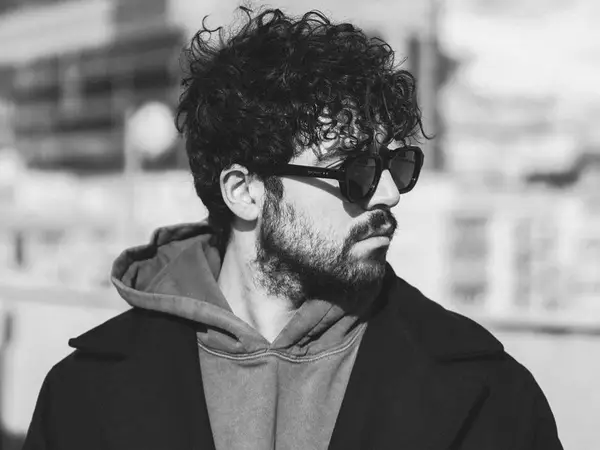“A song can unite, inspire, and ultimately change the world,” the US first lady said before announcing the Grammy for Shervin Hajipour’s revolution song ‘Baraye.’
Before its award for Best Song for Social Change at the Grammys 2023, a new category at the gala, Shervin’s creation had touched millions of Iranians who are protesting against the Islamic Republic for about five months now. The single had also become a viral sensation even among non-Persian-speaking music fans who were in support of the protests.
Lauding the track, Jill Biden added that the new award was put in place to recognize a tune that “responds to the social issues of our time and has the potential for positive global impact," and said she was "honored" to announce the first winner in the category. She also noted that more than 130,000 people sent their submissions for the song.
According to Variety in October, 95,000 of the submissions were made for Hajipour’s song. Describing the song as "stirring," Biden said, “This song became the anthem of the Mahsa Amini protests, a powerful and poetic poem for freedom and women’s rights."
The song, which was released in the early days of protests ignited by the death of Mahsa Amini in 'hijab police' custody, was viewed more than 40 million times in two days on Shervin’s Instagram account, and has since become the unofficial anthem of the women-led uprising. It soon became one of the most covered songs by professional singers such as Rana Mansour and a myriad of amateur Iranians. In October, British indie band Coldplay also made headlines after the group invited Iranian actress Golshifteh Farahani to perform the song onstage with them in Buenos Aires.
The word ‘baraye,’ which is translated from Persian as “for …” or “for the sake of”, is repeated at the start of every line of the song, which is composed of a collection of tweets by Iranians bemoaning the situation in their country: “For dancing in the streets; for the fear of kissing; for the students and their future”, and “for women, life, freedom”.
After the impactful song went viral and rocked social media, Shervin was arrested by the regime’s agents and the song was removed from his page. He was released on bail in October after he published a forced confession and an apology on his Instagram page. His case is still going through the 'legal' process, according to the Islamic Republic News Agency.
Hajipour, who had gained relative popularity in 2019 when he appeared as a contestant in the Iranian television talent show, New Era, now is among the favorite singers of the Iranian protests, along with rap artists Toomaj Salehi and Saman Seydi, whose stage name is Yasin.
After winning the Grammy, Hajipour simply wrote on Instagram, "We won." However, a large number of Iranians from all around the world congratulated him for the award, calling it a triumph for the antigovernment protests. Another Iranian Grammy award winner Kayhan Kalhor posted a story and wished success for Hajipour while German member of European Parliament, Hannah Neumann, tweeted “Beyoncé may have won 32 Grammys -- but this one surely is the most important one this year.”
Women’s rights activist Masih Alinejad said that “Once, if we were killed on streets, or hanged, no one would hear us. But now, our cry of protest, our music and art, has crossed the borders of the world.”
Canada-based activist Hamed Esmaeilion who has so far organized several rounds of worldwide protest rallies against the Islamic Republic, also posted to mark Hajipour’s victory and paid a tribute to all the artists that were killed by the Islamic Republic.
